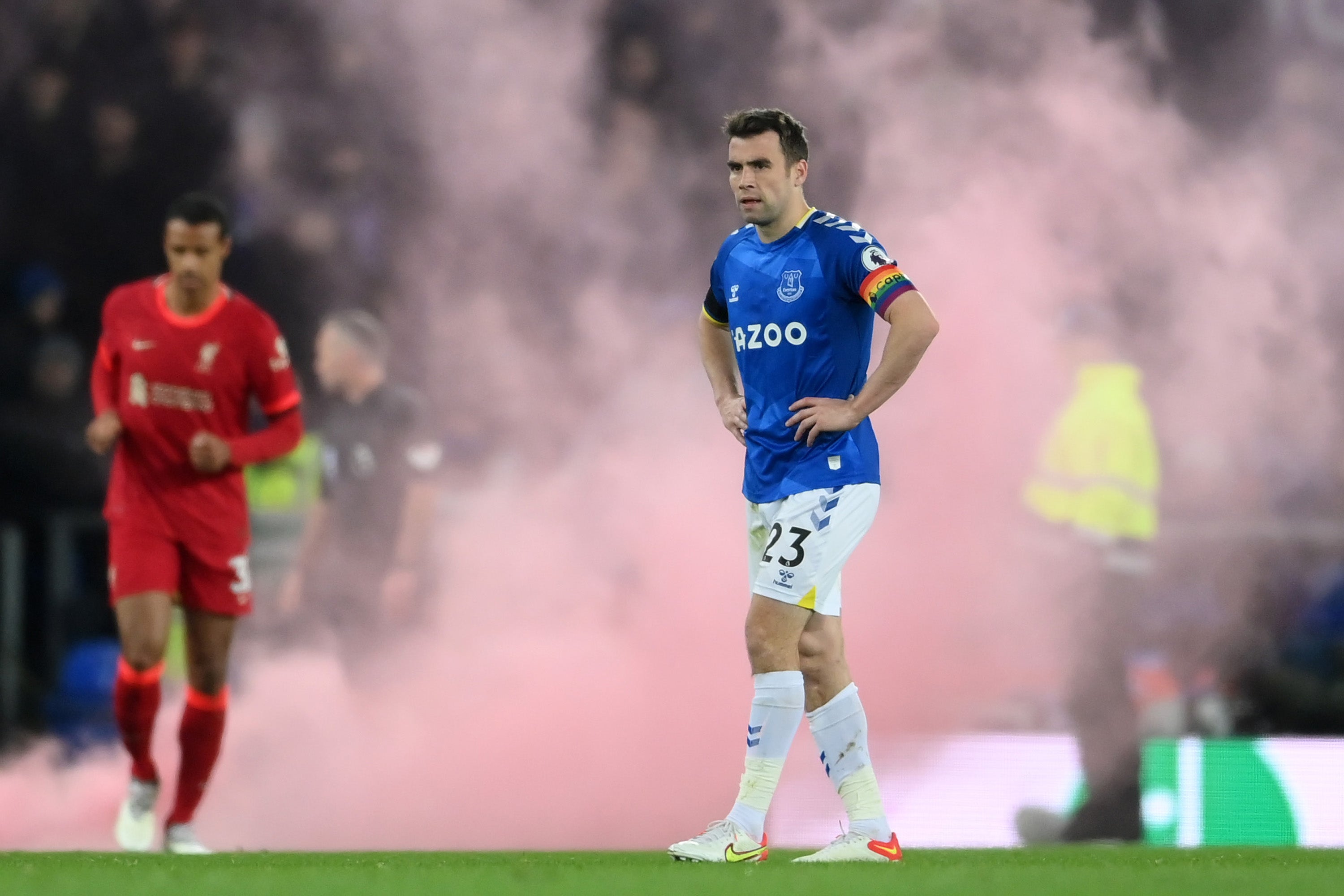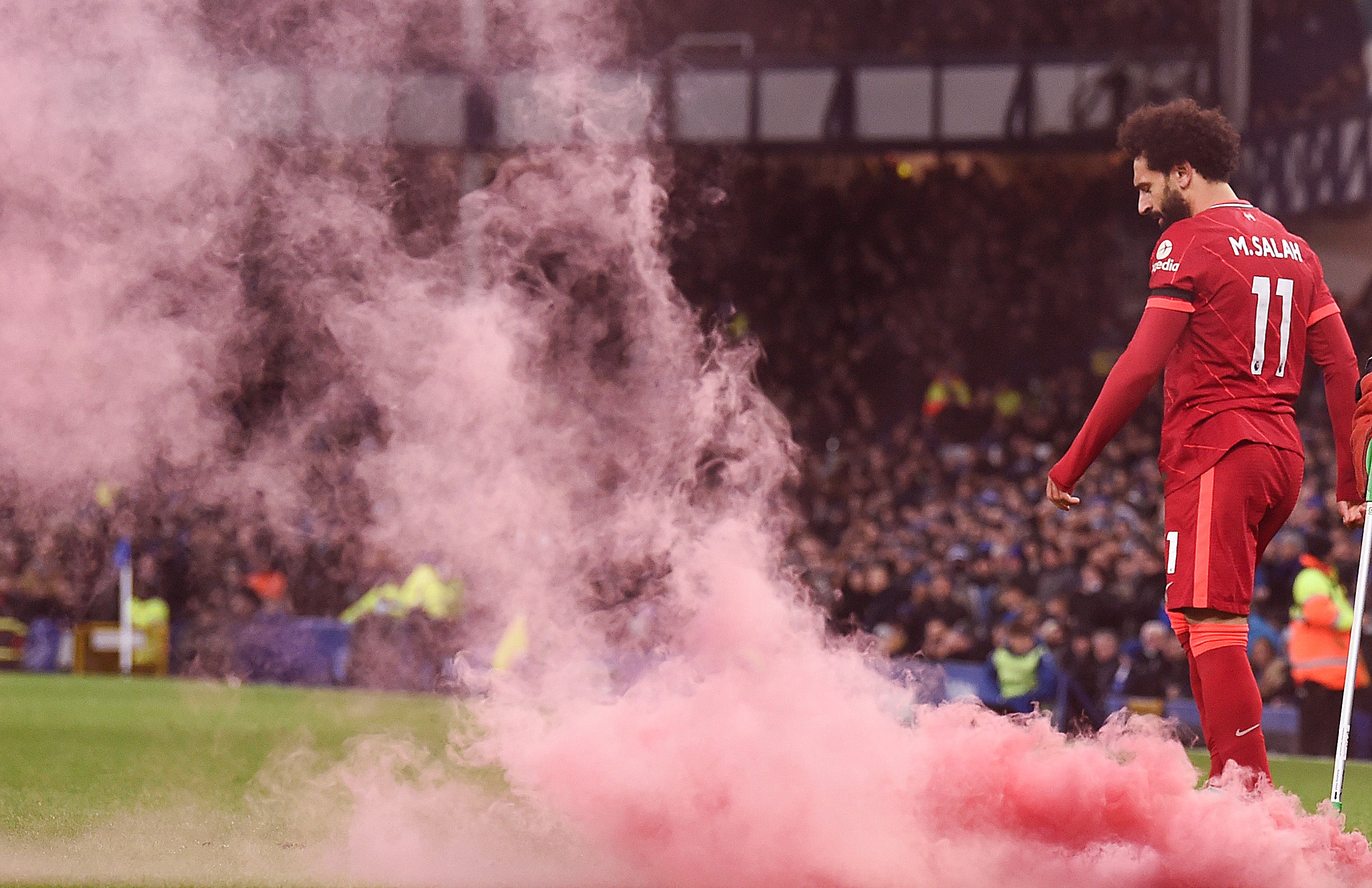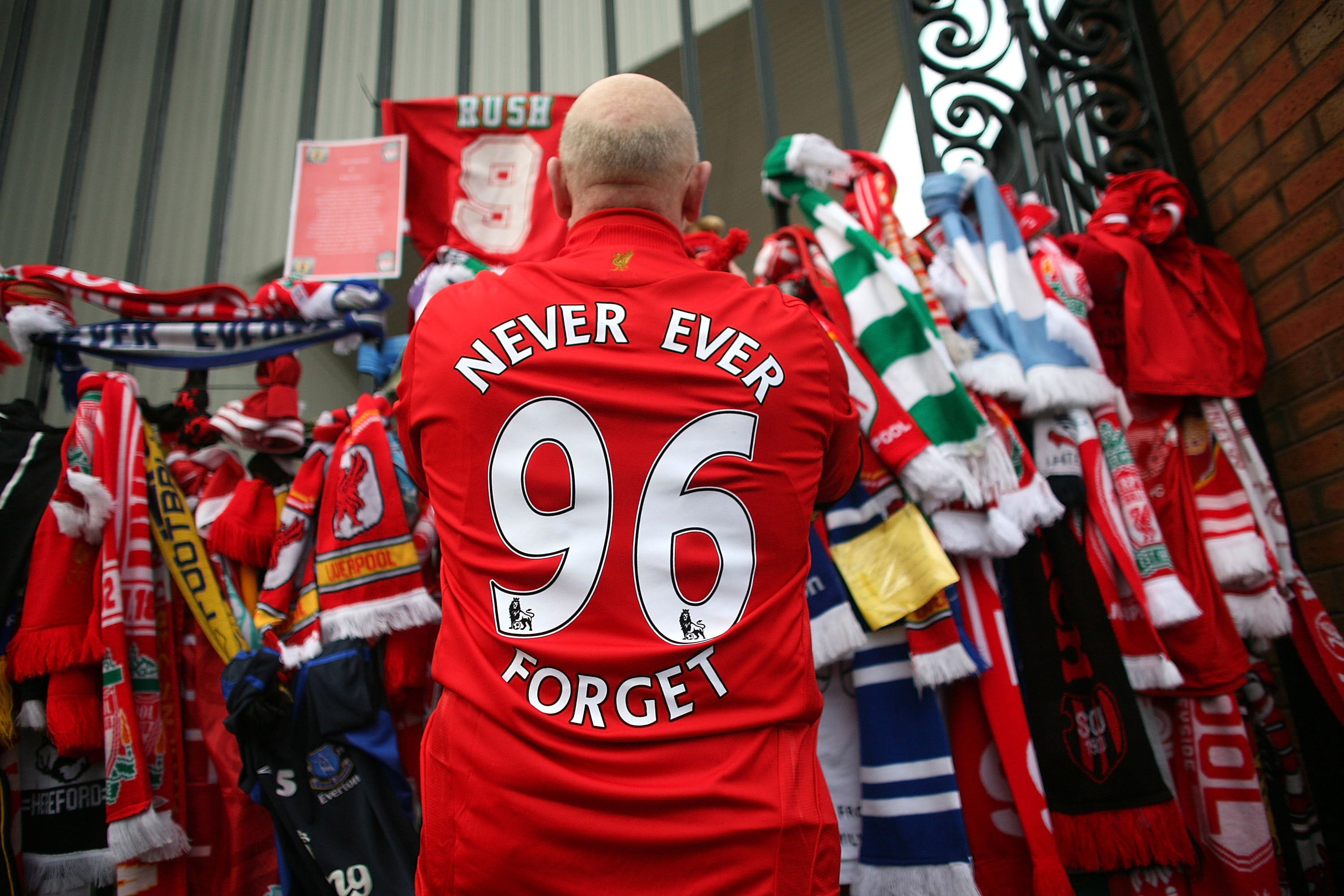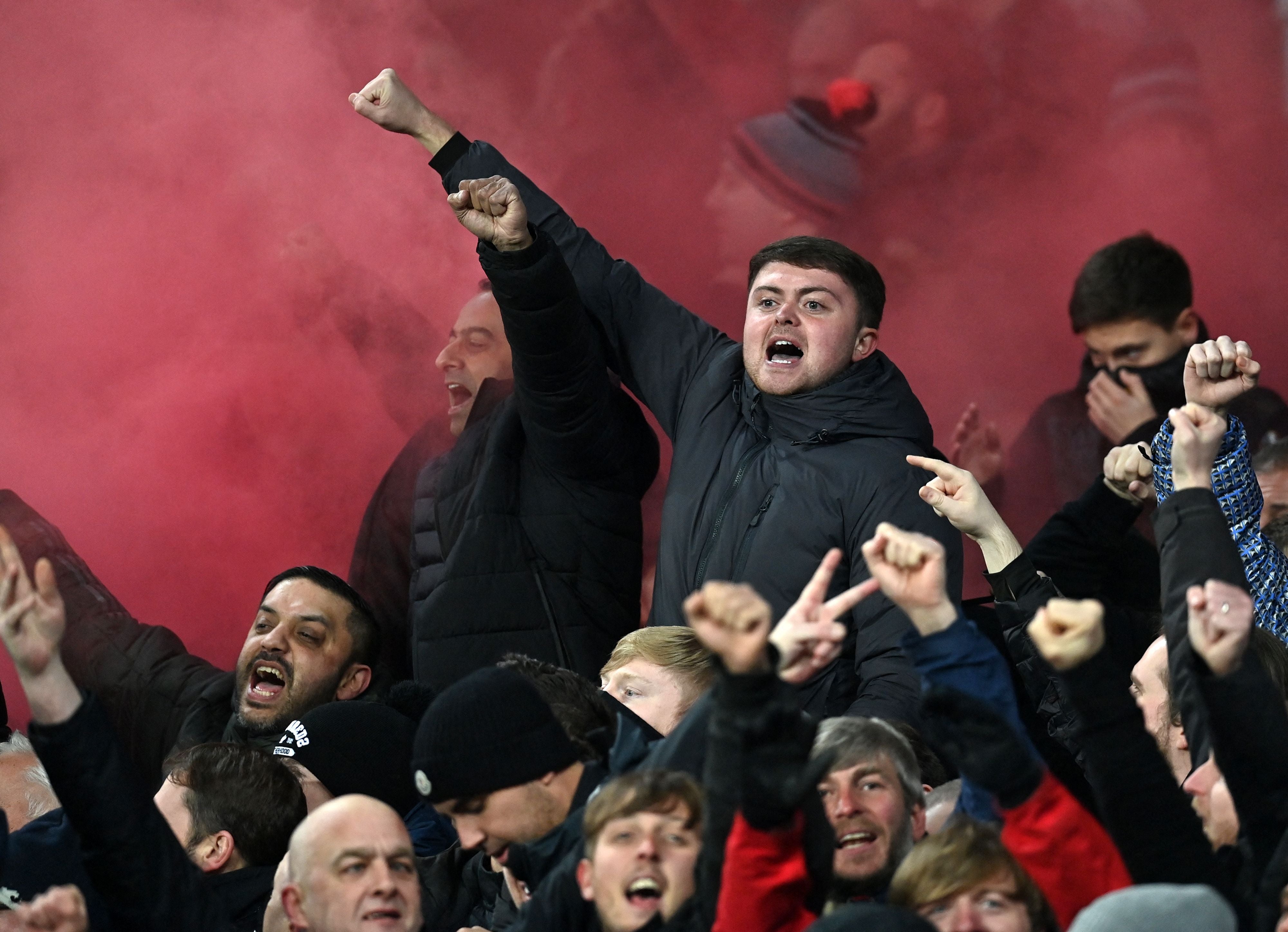Merseyside desperately needs a friendly derby but Liverpool vs Everton unlikely to deliver
Hillsborough has been back in the headlines this week after incidents during Liverpool’s games with both Manchester clubs and Sunday’s Merseyside derby threatens more of the same

Your support helps us to tell the story
From reproductive rights to climate change to Big Tech, The Independent is on the ground when the story is developing. Whether it's investigating the financials of Elon Musk's pro-Trump PAC or producing our latest documentary, 'The A Word', which shines a light on the American women fighting for reproductive rights, we know how important it is to parse out the facts from the messaging.
At such a critical moment in US history, we need reporters on the ground. Your donation allows us to keep sending journalists to speak to both sides of the story.
The Independent is trusted by Americans across the entire political spectrum. And unlike many other quality news outlets, we choose not to lock Americans out of our reporting and analysis with paywalls. We believe quality journalism should be available to everyone, paid for by those who can afford it.
Your support makes all the difference.After a week that contained a double dose of Hillsborough-related Mancunian bile, Merseyside badly needs a friendly derby. The likelihood of getting it is slim.
Everton go to Anfield on Sunday desperate for points in the battle against relegation. Frank Lampard’s team are a shambles and clinging on to their Premier League status by their fingernails. After Burnley’s 2-0 victory over Southampton last night, the threat of the drop feels very real.
Liverpool are chasing a quadruple. They are in rampant form. Their 3-2 victory over Manchester City in the FA Cup semi-final did not reflect the dominance of Jurgen Klopp’s team. The 4-0 rout of Manchester United on Tuesday could have had a much more lopsided scoreline. The chances of Everton stopping the red juggernaut appear to be slim.
There are a significant number of Kopites who dream of an addition to the quad. They want a “fiver”, with Everton’s relegation making up the fifth element of a fantasy season. Chants of “Going down” are bound to echo around Anfield if Liverpool go in front.
The potential response from the away section concerns sensible supporters on both sides. When discussing the possibility of their team getting something on Sunday, one Evertonian on social media was both realistic and pessimistic. “My only real hope is that there are no idiotic chants from the Everton end.”
Despite the overwhelming majority of Blues maintaining 100 per cent support for their Red counterparts over Hillsborough, there has long been a minority whose partisanship has stretched beyond the boundaries of good sense and decency. In some respects, the bitterness predates 1989 by decades.
There were always stories floating around the city about Liverpudlians who would never wear blue, to the point of eschewing jeans. Likewise, there were tales of Gwladys Street Enders who would not have red in the house and who refused to buy items like Coca-Cola because of the colour of the branding.
These acts of football-related defiance became part of Merseyside folklore. Individuals frequently refused to set foot in the other team’s ground under any circumstances, which made it difficult for embittered Liverpool supporters when FA Cup semi-finals were held at Goodison in the Seventies and Eighties. Irrational fanaticism has always been an undercurrent at both clubs.

Relations between the two fanbases have deteriorated badly in the past 25 years. The main flashpoint is another deadly stadium disaster, Heysel. There, at the 1985 European Cup final between Liverpool and Juventus, 39 mainly Italian fans were killed after a charge by the Merseyside club’s supporters caused a panicked crush. A wall collapsed under the weight of people amid horrific scenes.
The tragedy led to English sides being banned from Europe for five years. That decision was politically driven and completely unfair on all the teams involved except Liverpool, who eventually served a six-year ban. Of the 14 other clubs affected, Everton were the hardest hit, missing out on European competition for four of those seasons.
By the 10th anniversary of Heysel, a myth had begun to coalesce that the incident was primarily responsible for Everton’s decline as a top-flight power. The truth is much more complex. In the summer of 1985, mere weeks after the catastrophe in Brussels, Howard Kendall was able to attract Gary Lineker, the most sought-after goalscorer in the game, to Goodison. The decision to allow Kendall to leave for Athletic Bilbao in 1987 after Everton had won the title started the rot.
Kendall was frustrated by the lack of European competition but would have stayed at Goodison if the board had matched the Basque club’s offer at any point before the last possible moment. By the time Everton were prepared to pay Kendall the going rate, it was too late. That was the first in a series of bad decisions by successive regimes that put the team in the shadow of their neighbours.
That trend continues to this day. Heysel had an impact at Goodison – and it cannot be forgotten that Liverpool would have qualified for Europe in all six seasons they were exiled – but most of the reasons for Everton’s underperformance are self-inflicted.
The nonsense is not all one-sided. It is mindboggling given the events of the past 33 years but a section of Liverpool supporters are not beyond using other people’s dead to score points at football matches. A banner featuring the European Cup and the words “Steaua Bucharest 1986” was displayed on the Kop at derbies. Steaua won the continent’s most prestigious trophy the year that Kendall’s great Everton side should have been in the competition but were excluded because of the ban. The flag is provocative and hugely offensive. Anyone who claims it does not link directly to Heysel is being disingenuous.
Nevertheless, it is not as simplistic as one side being as bad as the other. A much more significant proportion of Evertonians than Liverpudlians indulge in such behaviour. The reasons for this are obvious: for Liverpool supporters Heysel brings shame, Hillsborough pain.
The chant of “Murderers” is frequently heard at derbies. Evertonians say they are referring to Heysel, as if that is a mitigation or justification. On Monday night, United supporters used the word, too. When they sang “The Sun was right, you’re murderers,” that was clearly about Hillsborough.

Only a fool would argue that there are no dots to be joined here. The overarching suspicion is that some of the more extreme elements in the Everton fanbase want those connections to be made.
The song that many of those associated with Hillsborough really find offensive, though, is often heard shamelessly booming from the away section. “Always the victims, it’s never your fault,” has been a staple for years for supporters of almost every team to play away at Liverpool. The hardcore minorities sing about murderers but the majority have no compunction about chanting about victims. Everyone is expecting it from the Everton end on Sunday.
The explanations for the meaning of this chant vary, depending on the moment. Sometimes it is said to be about Heysel. On other occasions it is claimed to refer to the Luis Suarez-Patrice Evra racism incident. Either way, the rationale is risible. Especially from local Evertonians, who are lumped into the way the city is seen from the outside regardless of the team they follow.
The classic example of how this anti-Scouse trope affects everyone in the region came in the leading article of The Spectator when the magazine was under the editorship of Boris Johnson. The people of the city, the piece argued, “see themselves, whenever possible as victims, and resent their victim status, yet at the same time they wallow in it.”
This was not written about Hillsborough, or football, but about Merseyside’s reaction to the beheading of Kenneth Bigley by jihadis in Iraq. It makes no distinction between Reds and Blues, matchgoers or people who have no interest in football. It is breathtaking in its sweeping offensiveness. Do Evertonians think they are somehow exempt from such opinions when they spout the “victims” gibberish?
“It’s a Hillsborough song,” Richie Greaves, who was in pen 3 on the Leppings Lane in 1989 and is now secretary of the Hillsborough Survivors’ Association, said. “It’s obvious. When else were we the victims?”
Most Liverpool supporters feel the same way, something that has been made clear to Everton fans over the years. Yet it continues to be sung.
“It’s a bit like the ‘Chelsea Rent Boys’ song,” Greaves said. “Loads sang it for years, then got told it was offensive and most people stopped singing it. If you continue in the knowledge of how it’s received, then it’s clear you don’t care about the feelings of those on the other end. ‘Always the victims’ is a Hillsborough song. It’s as simple as that.”
Each side can catalogue a list of horror stories that they can attribute to the other to explain the deterioration in the friendly derby. “Whataboutery” characterises and ruins any serious discussion of these matters. The blinkered nature of diehard fans mean they rarely see things rationally and that goes way beyond Merseyside.

Abuse over Hillsborough is growing. Not just in Manchester. Shrewsbury Town and Brentford fans have made news this year with their behaviour but plenty of other examples have gone under the radar. The last thing the city needs – especially after the week of the 33rd anniversary was overshadowed by City and United’s disdain for the dead – is for the idea of Hillsborough as “banter” to be amplified at a derby.
How bad has it been? Charlotte Hennessy, whose dad Jimmy died on the Leppings Lane at the age of 29 when his daughter was just six, said: “This year’s anniversary has been one of the worst. I’ve spent every day dealing with trolls and abusers.”
That horrifies the many, many Evertonians who have worked alongside their Liverpudlian friends and families in pursuit of justice. The first place a line must be drawn about this kind of conduct is on Merseyside.
Even if the “friendship” is fraying across Stanley Park, there are limits to what is acceptable. If Sunday turns ugly, both sides will be damaged – Liverpool emotionally and Everton reputationally. No one wants that.



Join our commenting forum
Join thought-provoking conversations, follow other Independent readers and see their replies
Comments